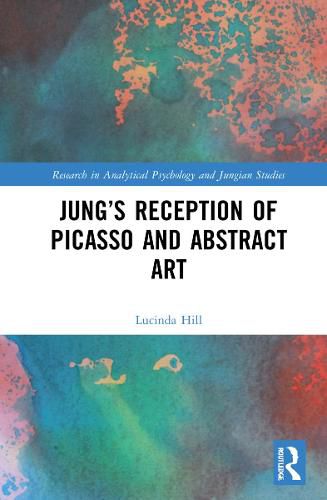Readings Newsletter
Become a Readings Member to make your shopping experience even easier.
Sign in or sign up for free!
You’re not far away from qualifying for FREE standard shipping within Australia
You’ve qualified for FREE standard shipping within Australia
The cart is loading…






This book explores the nature of Jung’s understanding of modern art, in particular his reception to the work of Picasso and his striking prejudice shown in his controversial essay of 1932.
Offering an important contribution towards understanding Jung’s attitudes towards Picasso and modern art, the book addresses the impact that Jung’s unwillingness to engage in a deeper exploration of modern artforms had on the development of his psychological ideas. It explores and uncovers the reasons for Jung’s derogatory view of Picasso and abstract art more generally, revealing how Jung was unable to remain objective due to his own complex and equally fascinating relationship with art and the psychology of image making. The book argues that modern art parallels Jung’s interests by embracing the spirit of experimentation and using new imagery to challenge creative conceptions, which makes Jung’s attitudes towards modern art all the more surprising.
Jung’s Reception of Picasso and Abstract Art will be of great interest to researchers, academics and those interested in analytical psychology, Jungian studies, art history and modernism, aesthetics and psychoanalysis.
$9.00 standard shipping within Australia
FREE standard shipping within Australia for orders over $100.00
Express & International shipping calculated at checkout
This book explores the nature of Jung’s understanding of modern art, in particular his reception to the work of Picasso and his striking prejudice shown in his controversial essay of 1932.
Offering an important contribution towards understanding Jung’s attitudes towards Picasso and modern art, the book addresses the impact that Jung’s unwillingness to engage in a deeper exploration of modern artforms had on the development of his psychological ideas. It explores and uncovers the reasons for Jung’s derogatory view of Picasso and abstract art more generally, revealing how Jung was unable to remain objective due to his own complex and equally fascinating relationship with art and the psychology of image making. The book argues that modern art parallels Jung’s interests by embracing the spirit of experimentation and using new imagery to challenge creative conceptions, which makes Jung’s attitudes towards modern art all the more surprising.
Jung’s Reception of Picasso and Abstract Art will be of great interest to researchers, academics and those interested in analytical psychology, Jungian studies, art history and modernism, aesthetics and psychoanalysis.